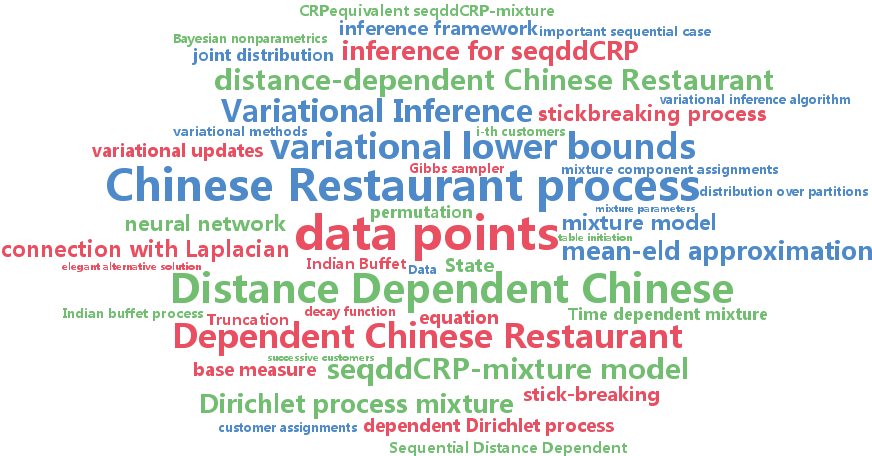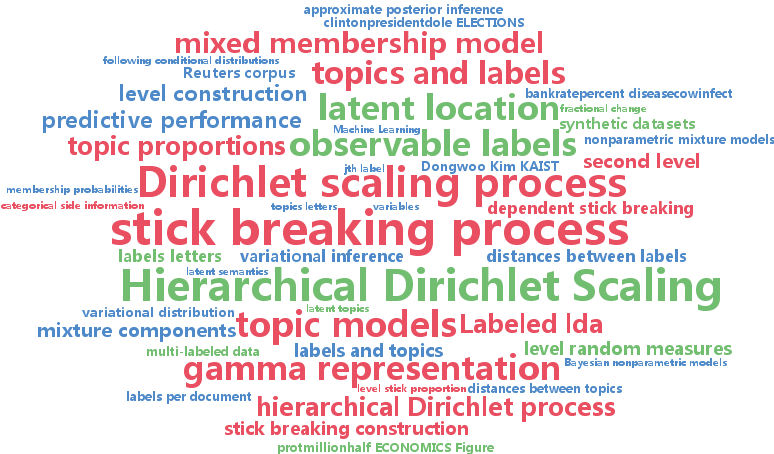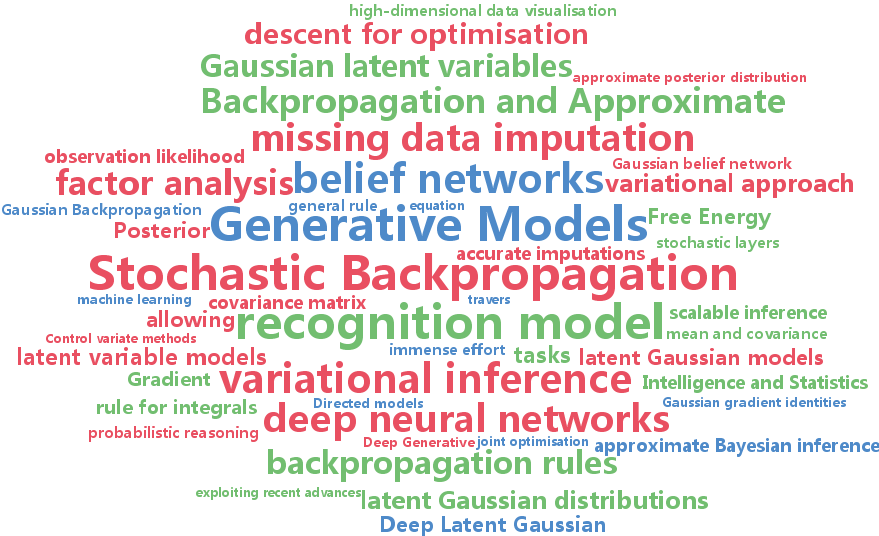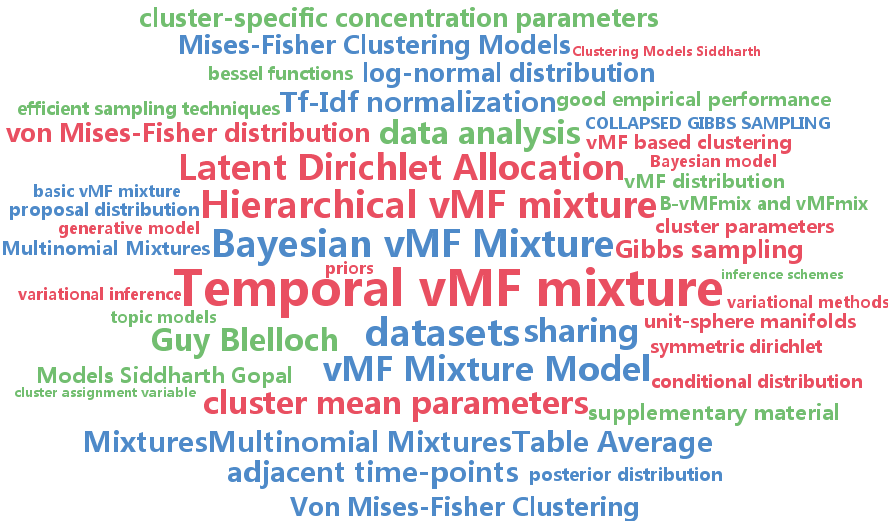variational inference
-
Sergey Bartunov and Dmitry Vetrov
Variational Inference for Sequential Distance Dependent Chinese Restaurant Process (pdf)
Recently proposed distance dependent Chinese Restaurant Process (ddCRP) generalizes extensively used Chinese Restaurant Process (CRP) by accounting for dependencies between data points. Its posterior is intractable and so far only MCMC methods were used for inference. Because of very different nature of ddCRP no prior developments in variational methods for Bayesian nonparametrics are appliable. In this paper we propose novel variational inference for important sequential case of ddCRP (seqddCRP) by revealing its connection with Laplacian of random graph constructed by the process. We develop efficient algorithm for optimizing variational lower bound and demonstrate its efficiency comparing to Gibbs sampler. We also apply our variational approximation to CRP-equivalent seqddCRP-mixture model, where it could be considered as alternative to one based on truncated stick-breaking representation. This allowed us to achieve significantly better variational lower bound than variational approximation based on truncated stick breaking for Dirichlet process.
-
Dongwoo Kim and Alice Oh
Hierarchical Dirichlet Scaling Process (pdf)
We present the hierarchical Dirichlet scaling process (HDSP), a Bayesian nonparametric mixed membership model for multi-labeled data. We construct the HDSP based on the gamma representation of the hierarchical Dirichlet process (HDP) which allows scaling the mixture components. With such construction, HDSP allocates a latent location to each label and mixture component in a space, and uses the distance between them to guide membership probabilities. We develop a variational Bayes algorithm for the approximate posterior inference of the HDSP. Through experiments on synthetic datasets as well as datasets of newswire, medical journal articles, and Wikipedia, we show that the HDSP results in better predictive performance than HDP, labeled LDA and partially labeled LDA.
-
Danilo Jimenez Rezende and Shakir Mohamed and Daan Wierstra
Stochastic Backpropagation and Approximate Inference in Deep Generative Models (pdf)
We marry ideas from deep neural networks and approximate Bayesian inference to derive a generalised class of deep, directed generative models, endowed with a new algorithm for scalable inference and learning. Our algorithm introduces a recognition model to represent an approximate posterior distribution and uses this for optimisation of a variational lower bound. We develop stochastic backpropagation -- rules for gradient backpropagation through stochastic variables -- and derive an algorithm that allows for joint optimisation of the parameters of both the generative and recognition models. We demonstrate on several real-world data sets that by using stochastic backpropagation and variational inference, we obtain models that are able to generate realistic samples of data, allow for accurate imputations of missing data, and provide a useful tool for high-dimensional data visualisation.
-
Siddharth Gopal and Yiming Yang
Von Mises-Fisher Clustering Models (pdf)
This paper proposes a suite of models for clustering high-dimensional data on a unit sphere based on Von Mises-Fisher (vMF) distribution and for discovering more intuitive clusters than existing approaches. The proposed models include a) A Bayesian formulation of vMF mixture that enables information sharing among clusters, b) a Hierarchical vMF mixture that provides multi-scale shrinkage and tree structured view of the data and c) a Temporal vMF mixture that captures evolution of clusters in temporal data. For posterior inference, we develop fast variational methods as well as collapsed Gibbs sampling techniques for all three models. Our experiments on six datasets provide strong empirical support in favour of vMF based clustering models over other popular tools such as K-means, Multinomial Mixtures and Latent Dirichlet Allocation.



